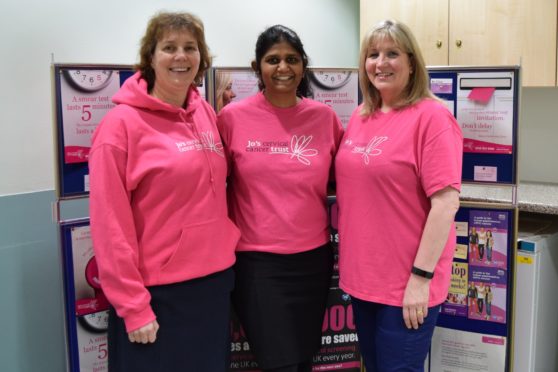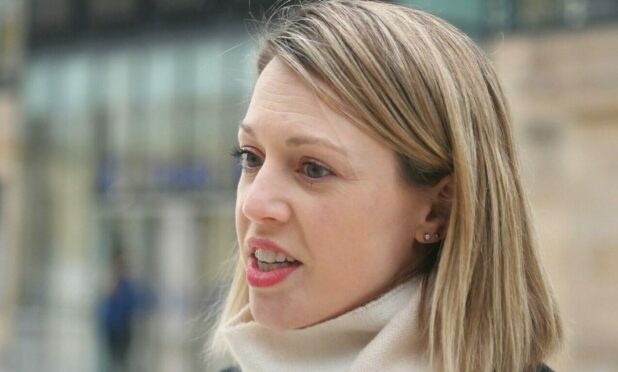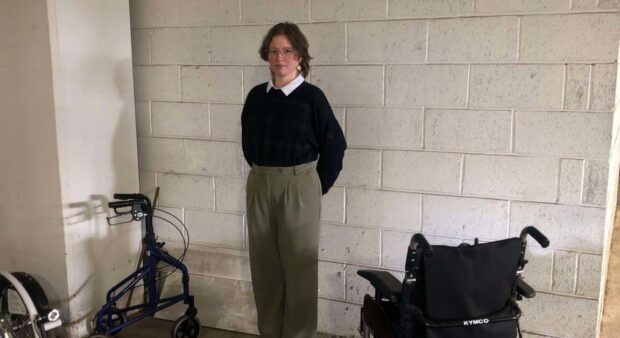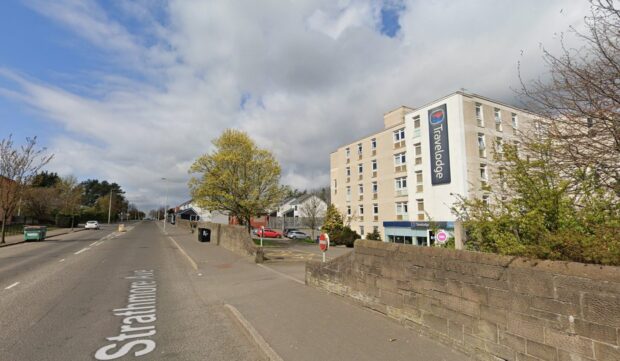Women are being urged to attend their cervical cancer screening as NHS Tayside warned the region’s rates of the condition are among the highest in Scotland.
The local health body is supporting Cervical Cancer Prevention Week, which aims to raise awareness of the potentially life-saving test offered to women over the age of 25.
NHS Tayside has among the lowest uptake of screening, although in 2018 there was an improvement thanks to pop-up clinics offering the test.
Around 75% of eligible women took up the offer of a smear test in 2018, compared to 70% the previous year.
However, the health board is keen to encourage the remaining 25% to come forward.
Dr Kalpana Ragupathy, lead colposcopist at Ninewells Hospital, said: “It’s difficult to say exactly why rates of cervical cancer in Tayside are so high, as it’s due to a combination of factors.
“One of the biggest factors associated with cervical cancer is smoking.
“When we last looked at the smoking rate in Tayside, it was high.
“In 2017 we did a study into why women don’t attend screenings and one in three said they wouldn’t go to one.
“When we asked the reasons, the most common answers were the unavailability of time, and also fear.
“As a result of the survey, we held pop-up clinics which allowed more flexibility, and these proved very popular. They were advertised at women who have never attended a screening before.”
In Scotland, around six women are diagnosed with cervical cancer every week, and that cervical cancer is the most common type of cancer in women aged 25-35 years old.
Cervical screening prevents eight out of 10 cervical cancers from developing.
All women between the ages of 25 and 50 are offered a cervical screening test every three years and those between 50 and 65 are offered screening every five years.
Girls in secondary school are also encouraged to take up the HPV vaccine, as the infection can be contributing factor to cervical cancer.
Gynae consultant Dr Wendy McMullen added: “Surface changes that need treating can almost always be treated in the clinic, either at the first or second visit.
“The examination takes about five minutes and the treatment, if needed, about another five to 10 minutes.
“Women are also completely in control when they come in for the test – you can have it stopped at any time if they are uncomfortable.
“However, most women leave saying it wasn’t as bad as they thought it would be.”
Cervical Cancer Prevention Week has been backed by Theresa May, who told the Commons she knows what it is like to have the test and called on all women to make sure they took up the offer.
She said: “I, as a Prime Minister, can stand here and say this – I know what it’s like to go through a cervical smear test.
“It is not comfortable. Sometimes, for some, it will be embarrassing, sometimes it’s painful, but those few minutes can save lives, so I would encourage all women to take up their smear tests.”










